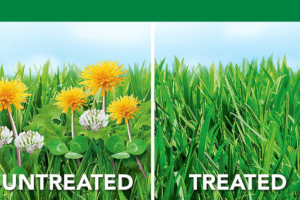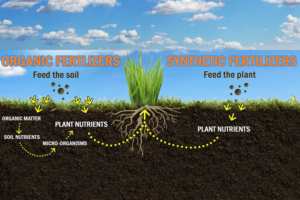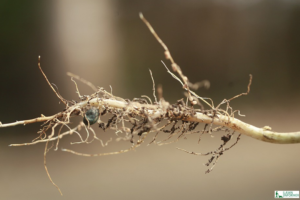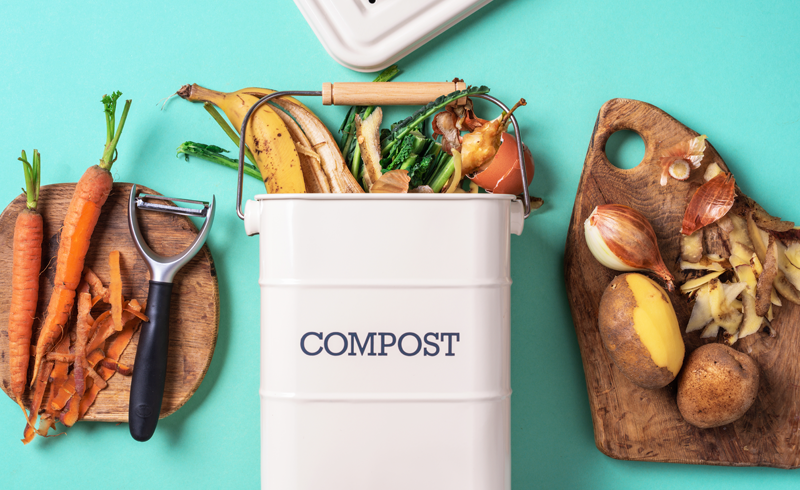
Introduction to Organic Fertilization Methods
The Rise of Organic Gardening
Organic gardening has been gaining traction and popularity among gardeners and landscapers worldwide. It’s not just a trend; it’s a return to age-old practices that respect the environment and prioritize natural growth. For many, organic gardening is more than just a method; it’s a philosophy. It emphasizes the importance of working in harmony with nature, understanding the ecosystem’s delicate balance, and nurturing plants without relying on synthetic chemicals. Eco-friendly fertilizers are becoming more common.
The beauty of organic gardening lies in its simplicity and effectiveness. By tapping into nature’s wisdom, gardeners can cultivate vibrant gardens that are visually stunning and environmentally friendly. It’s a win-win situation: the earth benefits from sustainable practices, and gardeners enjoy the fruits of their labor, knowing they’ve made a positive impact.
The Significance of Organic Fertilization
At the heart of organic gardening is the concept of organic fertilization. Unlike synthetic fertilizers, often derived from petroleum products or other non-renewable resources, organic fertilizers come from natural sources. Think of decomposed plant matter, animal manure, or mineral deposits. These natural fertilizers provide essential nutrients to plants and enhance the soil’s overall health.
Why is this important? Well, healthy soil is the foundation of any successful garden or landscape. It supports microbial life, aids in water retention, and ensures plants can access the necessary nutrients. Organic fertilizers play a crucial role in this.
They slowly release nutrients, ensuring plants get a steady supply over time. Moreover, they improve soil structure, making it more porous and aerated. For gardeners and landscapers, this means lusher lawns, vibrant flowers, and bountiful harvests. And the best part? This is achieved without harming the environment or disrupting the ecosystem’s natural balance.
As we delve deeper into organic fertilization, you’ll discover its myriad benefits to plants, the environment, and, ultimately, to us. It’s a journey of understanding, appreciation, and, most importantly, growth. So, whether you’re a seasoned gardener or just starting, get ready to embark on an exciting journey into the heart of organic gardening.
The Basics of Organic Fertilization
What is Organic Fertilization?
Organic fertilization uses natural materials, often derived from plant and animal sources, to nourish the soil and promote plant growth. It’s a method that has been used for centuries, long before the advent of synthetic fertilizers. The beauty of organic fertilization lies in its simplicity. By harnessing nature’s bounty, gardeners can give their plants the essential nutrients they need to thrive while maintaining the ecosystem’s natural balance.
For the average gardener or landscaper, this means a return to basics. It’s about understanding the natural processes that drive plant growth and using materials that complement, rather than disrupt, these processes. Organic fertilizers are typically slower-releasing, ensuring plants receive a steady supply of nutrients over time. This promotes healthier plant growth and reduces the risk of nutrient burn, a common issue with synthetic fertilizers.
How Does It Differ from Synthetic Methods?
Synthetic fertilizers, often recognized by their bright blue or green granules, are manufactured using chemical processes. They are designed to release nutrients, giving plants an almost instant boost quickly. While this might sound beneficial, it can sometimes be too much for plants to handle, leading to nutrient burn or imbalances in the soil. Moreover, synthetic fertilizers often involve non-renewable resources, making them less sustainable in the long run.
Organic fertilizers, on the other hand, are derived from natural sources. Think composted vegetable scraps, aged animal manure, or seaweed extracts. These materials undergo natural decomposition processes, breaking down over time to release nutrients in a form that plants can easily absorb. The result? A steady, sustained nutrient supply that supports long-term plant health. This means greener lawns, more vibrant flowers, and healthier crops for gardeners and landscapers.
Read also: Fall Fertilizer For Lawn – Preparing Your Lawn For Winter
However, the benefits of organic fertilization extend beyond just plant health. By choosing organic methods, you’re also positively impacting the environment. Organic fertilizers improve soil structure, increase microbial activity, and reduce the risk of chemical runoff into waterways. It’s a holistic approach that nurtures plants and cares for the earth. So, as you explore the world of organic fertilization, remember that you’re not just feeding your plants but also contributing to a healthier, more sustainable future for our planet.
Popular Organic Fertilizers and Their Uses
Compost and Compost Tea
The Magic of Decomposed Organic Matter
Compost is often called “black gold” by gardeners and for a good reason. It’s a rich, dark, crumbly substance from decomposed organic matter, such as vegetable scraps, leaves, and grass clippings. As these materials break down, they release a wealth of nutrients that plants love. Using compost in your garden provides essential nutrients and improves soil structure, making it more porous and better at retaining moisture.
How to Make and Use Compost Tea Effectively
Compost tea is a liquid solution made by steeping compost in water. It’s like giving your plants a nutrient-rich drink! Compost tea is simple: fill a bucket with water, add a generous amount of compost, and let it steep for a few days. Once ready, you can use it to water your plants, ensuring they get a direct dose of nutrients. Gardeners love compost tea because it’s easy to apply and offers immediate benefits. It’s beneficial for planting a quick boost or r revitalizing tired soils.
Animal Manures
The Benefits of Cow, Chicken, and Horse Manure
Animal manures have been used as fertilizers for centuries. They are rich in nutrients and can significantly improve soil health. Cow manure, for instance, is packed with nitrogen, phosphorus, and potassium, essential for plant growth. Chicken manure, on the other hand, is exceptionally high in nitrogen, making it great for leafy plants. While lower in nutrient content, horse manure is excellent for improving soil structure.
Proper Aging and Application Techniques
While animal manures are beneficial, it’s essential to use them correctly. Fresh manure can be too potent and might burn plants. It’s always best to use aged or composted manure in your garden. This ensures that pathogens are killed off, and the nutrients are more accessible to plants. When applying manure, mix it into the top layer of soil or use it as a mulch. This allows the nutrients to slowly release into the soil, providing a steady supply to your plants.
Green Manures and Cover Crops
The Role of Legumes and Other Green Manures
Green manures are plants grown specifically to be turned into the soil to improve quality. Legumes, such as clover and vetch, are popular choices because they can fix nitrogen from the air, enriching the soil. By planting green manures and digging them into the soil, gardeners can boost nutrient levels, improve soil structure, and suppress weeds.
How Cover Crops Enhance Soil Fertility
Cover crops, like rye or oats, are grown to protect and enrich the soil. They are typically planted in the off-season and then turned into the soil before the main crops are sown. Cover crops prevent soil erosion, suppress weeds, and improve soil health. They also act as a natural barrier against pests and diseases. For gardeners looking to adopt sustainable practices, cover crops are a fantastic addition to the gardening routine.
Worm Castings
The Wonders of Vermicomposting
Worm castings, or worm poop, are a fantastic organic fertilizer. They are produced through vermicomposting, where worms break down organic matter. These castings are rich in nutrients and beneficial microbes, making them a favorite among organic gardeners. What’s more, worm castings improve soil structure, enhance moisture retention, and promote root growth.
Using Worm Castings for Nutrient-Rich Soil
Incorporating worm castings into your garden is easy. Mix them into the soil, use them as a top dressing, or brew them into a nutrient-rich tea. The gentle nature of worm castings means there’s no risk of burning your plants, making them suitable for all stages of plant growth. Whether potting a new plant or looking to boost the health of established ones, worm castings are a versatile and practical organic fertilizer option.
By exploring these popular organic fertilizers, gardeners and landscapers can make informed decisions that benefit their plants and the environment. Each option offers unique advantages, ensuring there’s something for every gardening need. Embracing organic fertilization methods is not just about nurturing plants; it’s about fostering a deeper connection with nature and promoting sustainable practices that benefit us all.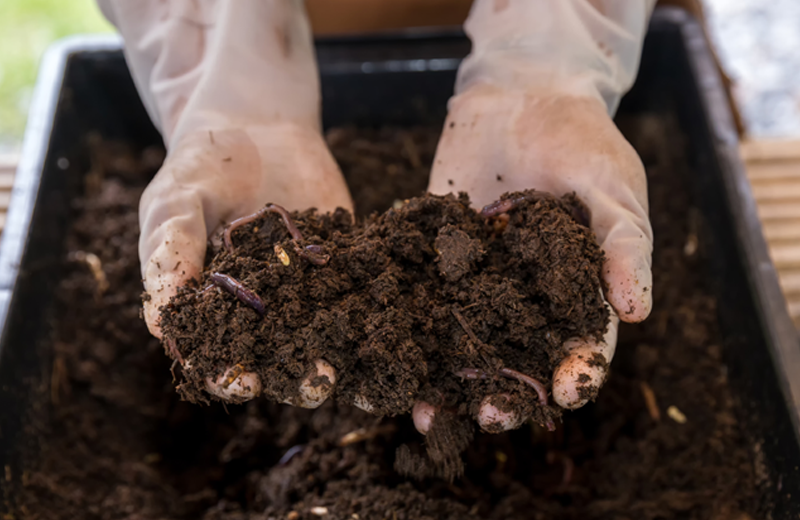
Organic Liquid Fertilizers: A Deep Dive
Seaweed and Kelp Extracts
Oceanic Nutrients for Your Garden
Seaweed and kelp extracts are like the ocean’s hidden treasures for gardeners. Derived from marine plants, these extracts are packed with minerals, amino acids, and hormones that promote plant growth. They provide essential nutrients, stimulate root development, enhance stress resistance, and boost plant health. This means lusher foliage, vibrant blooms, and increased yields for gardeners.
Application and Benefits of Seaweed-Based Fertilizers
Using seaweed and kelp extracts in your garden is straightforward. They are typically available in a concentrated liquid form that can be diluted with water and applied directly to plants. The beauty of these extracts is their versatility. They can be used as a soil drench, foliar spray, or even added to irrigation systems. The immediate availability of nutrients ensures plants get a quick boost, making seaweed-based fertilizers perfect for addressing specific deficiencies or giving plants a mid-season pick-me-up. Plus, with their natural composition, there’s no risk of chemical buildup or harm to beneficial soil organisms.
Read also: Scotts Southern Complete Lawn Care Bundle Review
Fish Emulsion and Hydrolysate
Tapping into Aquatic Nutrient Sources
Fish emulsion and hydrolysate are organic fertilizers derived from fish. They are rich in nitrogen, phosphorus, and potassium, making them an excellent choice for promoting plant growth. But it’s not just about the primary nutrients. Fish-based fertilizers also provide a host of micronutrients, amino acids, and vitamins essential for plant health. For gardeners, this means a comprehensive nutrient solution that caters to a wide range of plant needs.
The Difference Between Emulsion and Hydrolysate
While fish emulsion and hydrolysate offer similar benefits, their production processes differ. Fish emulsion is made by breaking down fish waste using heat and acid. The result is a thick, nutrient-rich liquid that can be diluted and applied to plants. On the other hand, fish hydrolysate is produced by cold-processing fish, preserving more natural vitamins and enzymes.
This makes hydrolysate a more potent and balanced fertilizer. When choosing between the two, consider your garden’s specific needs. Emulsion is excellent for a quick nutrient boost, while hydrolysate offers a more sustained release of nutrients, supporting long-term plant health.
By diving into organic liquid fertilizers, gardeners and landscapers can discover options that offer immediate and effective results. Whether you’re looking to address a specific deficiency, boost overall plant health, or simply explore organic fertilization methods, seaweed extracts and fish-based fertilizers are a fantastic place to start. They blend nature’s bounty and gardening science perfectly, ensuring your plants get the best of both worlds.
Challenges and Solutions in Organic Fertilization
Nutrient Balance
Ensuring a Well-Rounded Nutrient Profile
One of the primary challenges gardeners face when using organic fertilizers is ensuring a balanced nutrient profile. Unlike synthetic fertilizers, which are often formulated to provide specific nutrient ratios, organic fertilizers can vary in composition. This means that while one batch of compost might be rich in nitrogen, another might have higher phosphorus levels. This can be a bit of a puzzle for the average gardener, trying to ensure plants get all the nutrients they need in the proper proportions.
Addressing Specific Nutrient Deficiencies Organically
The key to overcoming this challenge lies in observation and adaptation. Gardeners can tailor their fertilization approach by closely monitoring plant health and looking for signs of nutrient deficiencies. Yellowing leaves, for instance, might indicate a nitrogen deficiency, while poor flower development could indicate a lack of phosphorus.
Once identified, these deficiencies can be addressed using specific organic fertilizers. Feather or blood meal can boost nitrogen levels, while bone meal can provide the necessary phosphorus. By adopting a responsive approach, gardeners can ensure their plants get a well-rounded nutrient supply, all while staying true to organic principles.
Pest and Disease Management
Natural Methods to Combat Common Pests
Organic fertilization, while beneficial, can sometimes attract pests. The rich, organic matter can be a magnet for insects like aphids, slugs, or snails. This challenges gardeners who want to maintain a healthy garden without chemical pesticides.
The good news is that nature offers a plethora of solutions. Introducing beneficial insects like ladybugs or praying mantises can help keep pest populations in check. Similarly, natural repellents like neem oil or diatomaceous earth can deter pests without harming plants.
Strengthening Plants’ Natural Defenses
Another effective organic pest and disease management strategy is boosting plants’ natural defenses. Healthy plants, nourished by organic fertilizers, are often more resistant to diseases and pests. By ensuring a balanced nutrient supply and promoting robust root development, gardeners can fortify their plants against common challenges.
Additionally, crop rotation and companion planting practices can reduce the risk of disease outbreaks and pest infestations. It’s all about creating a balanced garden ecosystem where plants thrive and pests find it hard to establish a foothold.
Tackling the challenges of organic fertilization might seem daunting at first, but with knowledge, observation, and a bit of creativity, they are easily overcome. By understanding the intricacies of organic fertilization and adopting holistic gardening practices, gardeners and landscapers can cultivate lush, vibrant gardens that are beautiful and environmentally friendly. It’s a journey of discovery, growth, and harmony with nature.
Organic Fertilization in Different Garden Settings
Home Vegetable Gardens
Growing Nutrient-Rich Edibles Organically
For many homeowners, cultivating a vegetable garden is a labor of love. It’s about more than just producing food; it’s about connecting with the earth, understanding the rhythm of nature, and enjoying the satisfaction of harvesting homegrown produce. Organic fertilization plays a pivotal role in this journey. Gardeners can ensure their vegetables are delicious and nutritious by nourishing the soil with natural fertilizers. After all, healthy soil produces healthy plants, yielding nutrient-rich produce.
Tailoring Organic Fertilization to Specific Crops
Different vegetables have varying nutrient requirements. Leafy greens like spinach and lettuce thrive on nitrogen-rich fertilizers, while fruiting plants like tomatoes and peppers require a balanced mix of nitrogen, phosphorus, and potassium. By understanding these needs, gardeners can tailor their organic fertilization approach, ensuring each plant gets precisely its needs. Compost, worm castings, or seaweed extracts can boost soil fertility, while specific amendments like bone meal or blood meal can address particular nutrient deficiencies. With some planning and observation, home vegetable gardens can flourish, producing bountiful harvests season after season.
Ornamental Flower Beds
Nurturing Vibrant Blooms the Natural Way
Ornamental flower beds are the pride and joy of many gardeners. They add color, fragrance, and beauty to any landscape. But to produce those vibrant blooms and lush foliage, plants need proper nutrition. Organic fertilization offers a gentle yet effective way to nourish ornamental plants. By providing a steady supply of natural nutrients, gardeners can ensure their flower beds remain a visual delight throughout the growing season.
Balancing Aesthetics with Soil Health
While the primary goal of ornamental flower beds is aesthetic appeal, underlying that beauty is the health of the soil. Organic fertilizers feed the plants and enrich the soil, promoting microbial activity and improving its structure. This creates a healthy foundation, ensuring plants can access the necessary nutrients. Whether it’s roses, daisies, or lilies, each plant benefits from the holistic approach of organic fertilization. And the result? A flower bed that’s stunning to look at but sustainable and environmentally friendly.
Urban Container Gardens
Maximizing Growth in Limited Spaces
Urban gardening is about making the most of limited space—every inch counts, whether a balcony, rooftop, or small courtyard. Container gardening is a popular choice among urban dwellers, allowing them to cultivate various plants in pots or planters.
But with limited soil volume, ensuring proper nutrition becomes even more critical. Organic fertilization offers a solution. Natural fertilizers like compost or worm castings can be mixed into potting soil, giving plants a steady supply of nutrients.
Overcoming Challenges with Organic Solutions
Container gardening comes with its set of challenges. Soil in pots tends to dry out faster, and nutrients can deplete quickly. Regular organic fertilization becomes essential to maintain plant health. Liquid organic fertilizers, like seaweed extract or fish emulsion, are particularly beneficial for container gardens.
They provide immediate nutrition, ensuring plants don’t suffer from nutrient deficiencies. By adopting a regular fertilization schedule and choosing suitable organic fertilizers, urban gardeners can enjoy lush, vibrant container gardens, even in the city’s heart.
Organic fertilization is a versatile and practical approach tailored to different garden settings. Whether cultivating edibles, nurturing ornamental plants, or maximizing space in an urban setting, organic fertilizers offer a sustainable solution.
They nurture the soil, promote plant health, and ensure gardens remain vibrant and productive. It’s a holistic approach that resonates with the ethos of modern gardening – working in harmony with nature to create spaces of beauty and abundance.
Conclusion
The Power of Organic Fertilization
A Sustainable Choice for Gardeners
Organic fertilization is more than just a gardening trend; it’s a commitment to sustainable and environmentally friendly practices. By choosing organic fertilizers, gardeners are nourishing their plants and taking care of the earth. The benefits are manifold, from improved soil health and structure to reduced chemical runoff that can harm our waterways. For the conscientious gardener, switching to organic fertilization is a step towards creating a garden in harmony with nature.
Reaping the Rewards of Natural Nourishment
The results of organic fertilization are evident in the vibrancy and health of the garden. Plants are more resilient, produce more decadent blooms, and yield tastier fruits and vegetables. But beyond these tangible benefits, there’s a more profound satisfaction in knowing that one’s gardening practices contribute to a healthier planet. The rewards of organic fertilization extend beyond the garden’s boundaries, influencing the broader ecosystem and ensuring a sustainable future for generations to come.
Looking Ahead: The Future of Gardening
Embracing Holistic Practices
The shift towards sustainable gardening practices, including organic fertilization, is gaining momentum as the world becomes more aware of environmental issues. Gardeners increasingly recognize the interconnectedness of all living things and their role in maintaining this delicate balance. By embracing holistic practices, gardeners are cultivating plants and fostering a deeper connection with the earth and its myriad life forms.
The Journey of Continuous Learning
Gardening is a journey of continuous learning and adaptation. As gardeners delve deeper into organic fertilization, they’ll discover a wealth of knowledge, techniques, and practices to enhance their gardening experience. From understanding the intricacies of soil health to experimenting with different organic fertilizers, the opportunities for growth and discovery are endless. And as they navigate this journey, they’ll find that the joys of gardening are amplified when done in harmony with nature.
In conclusion, organic fertilization is more than just a method; it’s a philosophy that underscores the importance of sustainable and harmonious gardening. It’s about nurturing plants, caring for the soil, and being stewards of the environment. As gardeners continue to embrace this approach, they’ll find that their gardens flourish and become sanctuaries of biodiversity and ecological balance. It’s a testament to the power of nature and the incredible potential that lies in working alongside it.

Bob Green, a passionate lawn care enthusiast with over two decades of landscaping experience, is this website’s proud owner. His vast knowledge of horticulture and dedication to helping homeowners maintain beautiful lawns are reflected in the valuable content he shares on his platform. John has always been interested in Agrostology.









